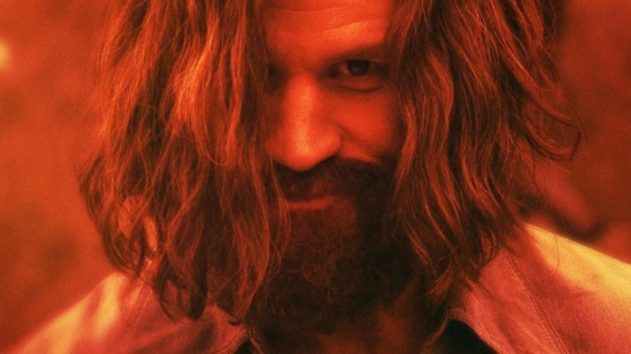WE’RE NOT IN WONDERLAND ANYMORE, ALICE, revisiting the Manson family murders with “Charlie Says” filmmaker Mary Harron
Director Mary Harron has had a fascinating journey on her way to the Tribeca Film Festival. Her earlier film “American Psycho” tells the story of a demented killer. “The Notorious Bettie Page” was a historic period piece. With “Charlie Says,” a historic period piece about a demented killer, she’s completed the circle.
The story of Charles Manson and his infamous crimes has been told before, most notably in the 1976 made-for-TV movie “Helter Skelter,” based on the namesake book. Harron’s take on the subject is superior in breadth. Told through flashbacks through the eyes of the three female members of the Manson Family (Leslie Van Houten, Patricia Krenwinkel and Susan Atkins), it provides a backstory that’s more personal than violent. With direction by Harron and a script by her frequent collaborator Guinevere Turner, we are taken step by step through the transformation of wide-eyed innocence into unadulterated evil.
When asked why she wanted to explore this particular story Harron explained that Turner (who co-wrote the aforementioned “American Psycho” and “The Notorious Bettie Page” with her) had given her the script to read in hopes of getting feedback. As Turner had grown up in a cult until the age of 11, her mind naturally gravitated towards the idea. “I knew she would have a wonderful perspective of how a cult works. I had always been fascinated by the Manson Family and the girls involved have always been stereotyped as crazy, but Turner’s script showed them as actual people.” She adds, “the idea of showing the story through two timelines, including the aspects of the girls from prison, had never been done before.”
OPINION: Where have the Bettie Pages gone?
There’s no shortage of literature on the subject matter. Along with Helter Skelter by Vincent Bugliosi, several books have been written by some of the actual cult members, including Tex Watson (portrayed in the film by Chace Crawford) and of course Atkins. Harron also listened to Katrina Longworth’s podcast “You Must Remember This,” which did an episode on Charles Manson’s Hollywood.
One of the strengths of the film is the depiction of Charles Manson himself, played brilliantly by Matt Smith, of “Doctor Who.” “Matt got the inner character which translated to his body language.” Unlike other Manson portrayals, Smith’s performance combines a subtle and manipulative intelligence that in many ways is more dangerous than the public’s common perception of a knife-wielding lunatic. According to Harron, “one of Manson’s gifts was finding people’s weaknesses and connecting with them in a way that made them feel like he understood them,” adding, “once women were engaged and committed to him, he would play with their emotions by being both mean and nice.”
Anyone familiar with this incident is aware that in 1969 Manson’s brainwashed followers carried out his twisted instructions by killing nine people in the hopes of starting a race war. The most famous of these victims was actress Sharon Tate (portrayed by Grace Van Dien). The theory of “what is implied is stronger than what is seen” is used by underscoring the film’s violence.
In an era where true crime stories currently dominate television, a medium Harron knows well, she always saw “Charlie Says” as a film rather than a mini-series. “It’s a very self-contained story,” admits Harron. Turner’s tightly-wound script focusing more on the cult rather than the legal aftermath works to the film’s advantage by avoiding the pitfalls of a dragged-out police investigation and court trial.
Most period pieces try to balance hard facts with artistic license but Harron insists that when doing “Charlie Says,” as well as her other period films, she tried to stay as close to reality as possible. “We try to keep very real since real life is more interesting then what you could make up,” Harron reflects.
The main cast of female Manson followers includes ingenues Hannah Murray, Sosie Bacon and Marianne Rendón. Considering the vulnerable situations their characters are placed in, including prancing naked around Manson’s California commune, their trust in Harron’s direction is obvious. “The cast had a good spirit and chemistry, like a weird summer camp,” mused Harron. Despite portraying these characters as human beings Harron is quick to point out she doesn’t let anyone off the hook for their abhorrent behavior. “I’m not trying to advocate anyone, just follow the story and try to understand how this happened.”
CANNES FESTIVAL: Screen Comment’s Ali Naderzad will be in Cannes, France from May 14th to the 25th 2019 and bring you first-hand reactions to new films by Almodovar, Jarmusch, Bellocchio, the Dardenne Brothers, Jessica Hausner, Elia Suleiman and many others. Photos, off-the-cuff remarks and anecdotes at our Twitter
At present Harron is probably Hollywood’s best director of historical biopics, starting with her first film “I Shot Andy Warhol.” Not surprisingly, she’ll revisit the genre she knows so well in her next project, one that looks at the final years of surreal artist Salvador Dali’s life. Ironically, it was written by her husband, writer/director John Walsh, whose previous film “Pipe Dreams” is a personal favorite of yours truly.
With Manson’s death in 2017 and cult member Van Houten’s recent April 24th parole appeal “Charlie Says” is timely. In addition to Tribeca it was an Official Selection in last year’s Venice International Film Festival.
It opens in wide release on May 17th.
You’ll find high-quality still photography from the film and from Mary Harron at our Facebook page.
news via inbox
Nulla turp dis cursus. Integer liberos euismod pretium faucibua



